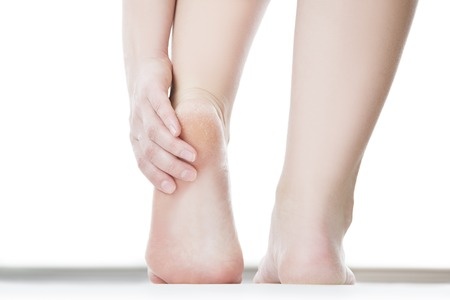How To Combat Cracked Heels
/The heat is definitely on in Monmouth County, New Jersey. Over the course of this month, we’ve seen the temperature drop almost 40 degrees, forcing us to burn the home heating oil once again. When the thermostat goes up, so does the dry air in our homes. Believe it or not, this dry air can have an impact on our feet.
Heels take a lot of abuse
They’re the first part of our foot to hit the ground when we’re walking or jogging, so they absorb a lot of impact.
They’re designed with some padding underneath them, but with use, the padding gradually becomes thinner.
As we age, sweat glands in our feet produce less moisture, leaving the skin vulnerable to dryness.
With the added factor of dry heat being pumped into our homes at this time of year, heels can get very dry.
Abuse can lead to dangerous cracks
Having dry heels is one thing. But it’s an entirely different matter when dryness progresses into deep cracks, also called heel fissures. Deeply-cracked heels are dangerous for the following reasons:
They expose deep layers of skin and blood vessels.
They’re a gateway for bacteria to enter the body.
If left untreated, they may be prone to open bleeding.
They can take a long time to heal and may not do so without a doctor’s intervention.
Strategies to combat cracked heels
You can help prevent cracked heels by
Wearing cushioned shoes - to help preserve protective fat pads.
Using a pumice stone to remove dead skin before it turns into a hard callus.
Applying thick moisturizer to dry heels. Do this on a daily basis to keep the skin of your heels fresh, supple and well-moisturized.
If you do develop heel fissures, have them evaluated and treated as soon as possible to prevent bleeding and infection. Visit board-certified podiatrists Samantha Boyd, DPM, Hal Ornstein, DPM, Dan Phan, DPM, and Joseph Saka, DPM of Affiliated Foot & Ankle Center. We’re experts in diagnosing and treating all ailments of the foot and ankle. Call us at (732) 905-1110 or make an appointment online to see us in Howell or Jackson, New Jersey.


